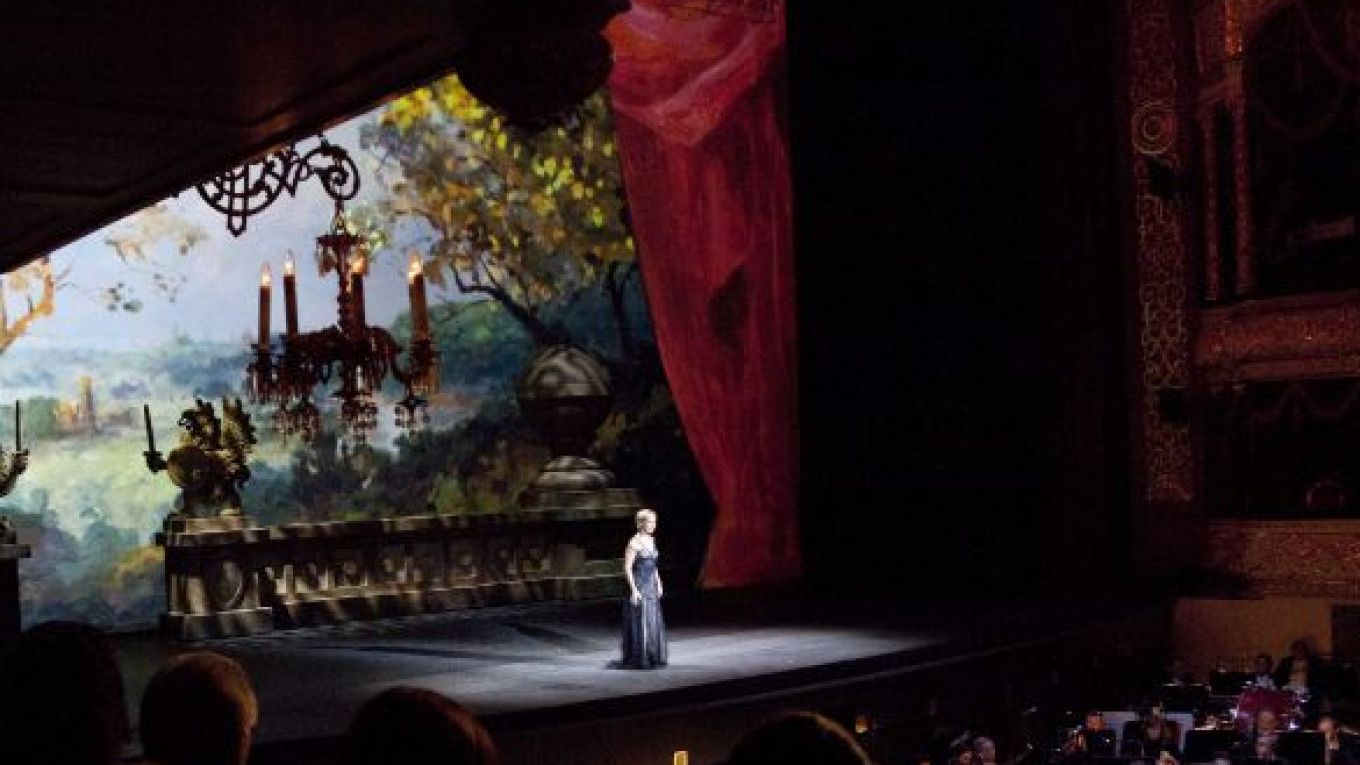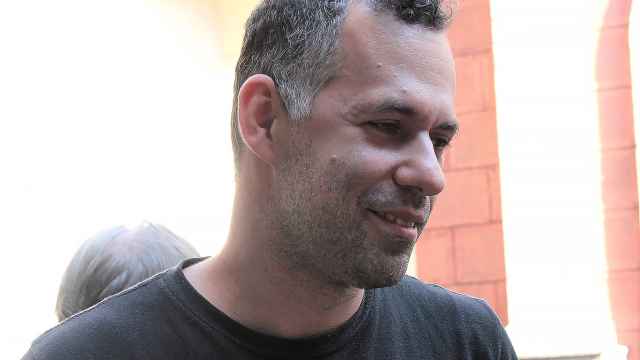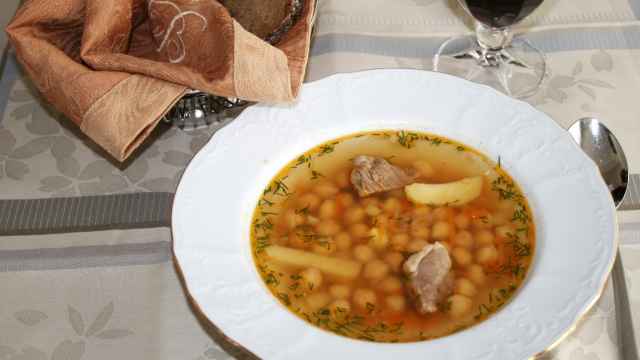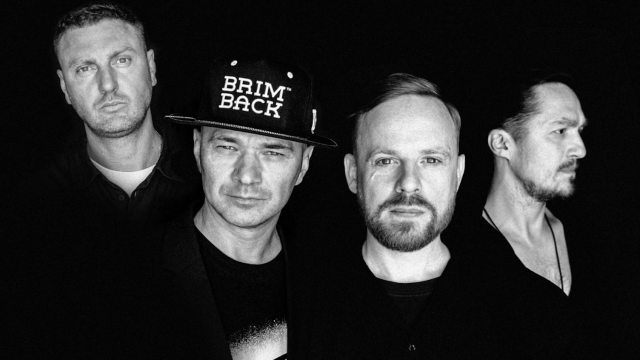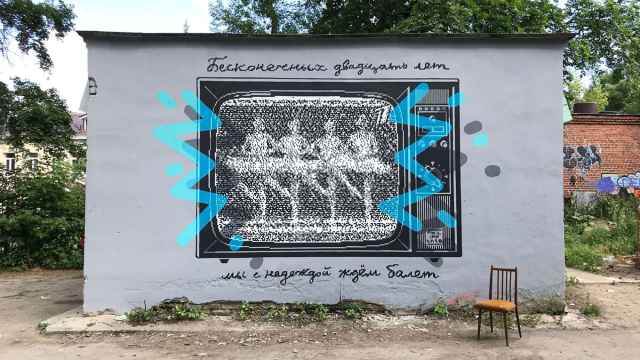The Bolshoi Theater reopened after a lavish renovation that took six years, cost $700 million and revived a revered cultural symbol scarred by centuries of use and abuse.
Politicians, billionaires, film directors and fashion designers of the Russian elite strolled the red carpet Friday leading up to the cream-colored, eight-columned ballet and opera house that began life as a pet project by Empress Catherine the Great who founded it in 1776.
“The Bolshoi is one of our greatest national brands so we are all celebrating the opening of the main building of the Bolshoi Theater,” a black tie-clad President Dmitry Medvedev said on the grand stage.
Medvedev paid tribute to all those involved in restoring gilded lustre to a building that has been a physical witness to the rule of tsars, their brutal overthrow in the Bolshevik Revolution, two world wars, the rise of the Soviet state, the collapse of Communism and Russia’s latest resurgence in a capitalist world.
“I would like to thank all those who took part in the rebirth of our miracle, our great national brand — the Bolshoi Theater,” he told guests including Russian Orthodox Church Patriarch Kirill, former Soviet leader Mikhail Gorbachev and ballet legend Maya Plisetskaya, seated under a 6-meter chandelier.
He then took a seat in a gold-lined box where tsars and Soviet leaders sat for performances.
About 100 musicians and opera singers in orange and white hard hats and workmen’s overalls then took to the stage, where they burst into song performing “Slavsya” by the 19th-century composer Mikhail Glinka.
Outside, Kremlin guards clad in charcoal gray wool overcoats encircled a Bolshoi all lit up in blue and gold.
The theater, which has survived three fires, bombing in World War II and was at one time perched above an underground river, has been restored to its opulent tsarist beginnings, covered in gold leaf, and had cutting-edge acoustics added.
After years of neglect and heavy use during Soviet times, the theater was closed in 2005 for restoration. The Bolshoi Ballet troupe continued performing on the neighboring, but smaller New Stage.
Friday’s opening show featured top dancers such as Svetlana Zakharova and Maria Alexandrova, as well as guest opera singers including France’s Natalie Dessay and Lithuanian soprano Violeta Urmana.
Performances included pieces by Russian composers Alexander Borodin, Dmitry Shostakovich and Sergei Prokofiev.
Moscow’s central streets were grid-locked after security was beefed up to allow the 2,000 guests in for a thoroughly Russian evening, which was broadcast live on YouTube.
Italian actress Monica Bellucci, swathed in diamonds and dressed in a strapless crimson dress, joined Russian officials as they crowded into the theater, lined with plush red chairs that have been tested for sound-absorption.
Rare pine wood applied to the walls also helps improve the quality of the sound, which has won praise from leading opera singers, and even two of the nearest stations of Moscow’s sprawling metro will be soundproofed.
The Bolshoi had world-class acoustics before the Communist era, when sound-reflecting gold was scraped off and stolen and the hollow cylinder underneath the orchestra, thought to be impractical, was filled with cement.
The rigid Soviet-era seats were replaced with fewer, wider and more comfortable ones, cutting the number of seats for the main stage to 1,720 from 2,200.
But not everyone was pleased with the revamp. The Bolshoi’s principal dancer, Nikolai Tsiskaridze, has told local media the old theater’s interior has been replaced with even cheaper material.
“It is a new creation,” he said in an interview with a Russian television channel. “You have the feeling that you are in a hotel in Turkey that has been built in the shape of the Bolshoi Theater.”
(Reuters, MT)
A Message from The Moscow Times:
Dear readers,
We are facing unprecedented challenges. Russia's Prosecutor General's Office has designated The Moscow Times as an "undesirable" organization, criminalizing our work and putting our staff at risk of prosecution. This follows our earlier unjust labeling as a "foreign agent."
These actions are direct attempts to silence independent journalism in Russia. The authorities claim our work "discredits the decisions of the Russian leadership." We see things differently: we strive to provide accurate, unbiased reporting on Russia.
We, the journalists of The Moscow Times, refuse to be silenced. But to continue our work, we need your help.
Your support, no matter how small, makes a world of difference. If you can, please support us monthly starting from just $2. It's quick to set up, and every contribution makes a significant impact.
By supporting The Moscow Times, you're defending open, independent journalism in the face of repression. Thank you for standing with us.
Remind me later.


